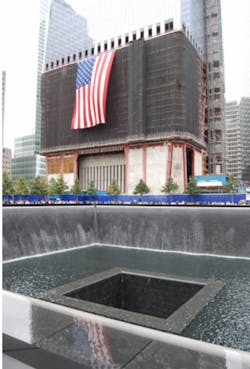9/11 Families Slam Plans for Remains
Less than two months after the September 11 memorial opened, the dispute over the emotional issue of what to do with unidentified human remains from the terror attack continues to fester for families of victims.
The latest flare-up came after the city and officials for the museum, which is slated to open on Sept. 11, 2012, sent out a letter to families telling them of specific plans to house remains in a private area some 70 feet underground in the museum complex.
The city's office of the chief medical examiner plans to keep the remains in a special safeguarded repository located between the two footprints of the Twin Towers to "provide the highest levels of care and the safest environment for the remains," the letter sent to all 9/11 families stated.
But the Oct. 17 letter, signed by museum president Joe Daniels and city medical examiner Dr. Charles Hirsch, did nothing to dampen criticism that the repository -- set within the museum -- is the wrong place to keep the remains.
"A memorial is a place of reverence, a museum is a commercial venture," said attorney Norman Siegel, who represents a group of families opposed to the planned placement of the remains.
"This is disgusting and this is disrespectful, not only to the dead but also the living," said Rosemary Cain of Massapequa, whose firefighter son George died on 9/11.
Siegel said the families he represents think an above-ground repository outside the museum should be considered. The families, said Siegel, are angry that the city didn't seek input from all of those who lost someone on 9/11, and he had filed a Freedom of Information lawsuit to get the list of names to poll all the families.
Last month, a state court judge ruled that the city didn't have to disclose the list and wasn't under any legal obligation to seek family input about what to do with the remains. The city only had to disclose information in the Oct. 17 letter about where the remains of the more than 1,100 unidentified victims were going to be placed, said Manhattan State Supreme Court Judge Cynthia Kern.
FDNY Lt. Jim McCaffrey, whose brother-in-law Orio Palmer, of Valley Stream, died at Ground Zero, opposes the museum setting, but will accept it if most families want that.
The city agrees with the court's decision about releasing 9/11 families' names and addresses because it would be "an unwarranted invasion of personal privacy," said city attorney Thaddeus Hackworth.
McClatchy-Tribune News Service
